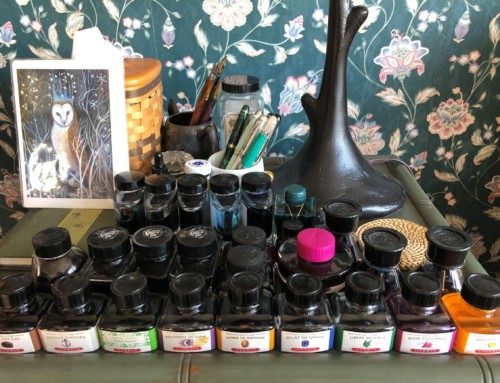Culture gives women a number of problems to solve, often with no true or satisfying solution. Here’s one.
I am thinking today of two occasions during the last ten years when I was manhandled by cheerful, “nice,” married men. In each case, I was a guest in their home, invited there to share music and stories. One of them invited me upstairs to show me some musical instruments. The other brushed against me repeatedly and then laughed in my ear, “I just like touching you.”
I want to make it clear here that this attention was not flattering. It felt demeaning. I didn’t know what to do or say. I was reduced to a voiceless girl, despite being a grown woman in my forties. I was flustered and embarrassed and I hated it.
In each case, I never returned to their homes, despite repeated invitations. I never said anything to either of the wives because I didn’t want to hurt or embarrass them. My choice to remain silent drove a wedge between us and they seemed hurt and puzzled by my withdrawal.
I minimized what happened even in my own mind but at the same time, I felt the terrible pressure of a conundrum: return and invite more of this attention or don’t return and appear cold or anti-social.
Along with this seemingly unresolvable catch-22 came a line of ruthless self-questioning:
Did I do something to invite this behavior?
Was I too friendly?
Was it a mistake to go upstairs to see the musical instruments? Was that a clear sign of interest? Is there a code I don’t know and should have learned by now?
Should I have said something immediately? Is failure to protest immediately a form of complicity?
What’s wrong with me that I would put up with this behavior?
Who do I think I am to be living as an artist? Why have I created a life for myself in which I am dependent on those who pay for my art? (Yes, that one gets bundled in there, along with odd strands about being unmarried and living a somewhat unconventional existence – not in a proud way, alas, but in a self-blaming way).
It’s also embarrassing to admit that I berated myself more than once for not being able to “lighten up” and “get over myself” and accept the subsequent invitations. “They’re friendly people,” I’d tell myself. “They’re just affectionate and they’re trying to include you in their circle.” But no matter how I harangued myself, I couldn’t make myself return.
I got myself coming and going: I should accept their invitations to be social and warm, and yet I can’t; I don’t like what happened, but somehow it’s my fault.
Today, something shifted inside me. I don’t know what has caused this change, but I understood in a flash that this whole issue of my guilt for not returning to their homes and not providing an explanation and the self-blame about what happened is OVER.
I’m done apologizing or explaining.
I see that it’s essential to prioritize my self-respect and safety over someone else’s opinion of me.
I don’t need to prove that I’m warm or that I care about people, especially if it means putting myself into situations that feel so terrible.
I’m done blaming myself for what happened. I didn’t seek that sort of attention from either of those men. They alone are responsible for their bad behavior.
Our culture tells women to be warm, to be available, to be open, to be social – AND to take responsibility for everything that happens and especially for how men behave around us.
In many ways, we are told that other people will tell us who we are, that our very identity is a matter for consensus opinion. Everyone gets a vote except you.
I know that these two little incidents are the very tip of the iceberg of what women have experienced. I myself have had scarier and more explicit things happen to me with strangers. But these two moments have lodged in my mind for years and I think the reason is that there are real relationships involved and their attendant expectations and roles. Like a splinter, these have stuck in me, causing me to doubt myself and to stay locked in that conundrum: Go along and take your licks – or – Don’t go along and take your licks.
While our actions do matter, I think that the heart of this conundrum is not about action but about the way we think about ourselves and our lives. When I was young, my family called me “the peacemaker” because of my tendency to smooth things over and calm the angers and unhappiness in our home. While I am glad and proud to be a voice for peace, I see now that this old role is the one that clamped me into the bear-trap of this conundrum.
Being responsible for everyone’s feelings and even for their behavior leaves no space for me. It’s what steals your voice in the moment when you should be shouting, “Get your hands off me, you creep!” It’s what leaves you worrying about the feelings of the wives rather than feeling outraged about what had happened to you in their home.
It’s a thankless role and I’m ready to retire it. Perhaps you’d like to join me.




